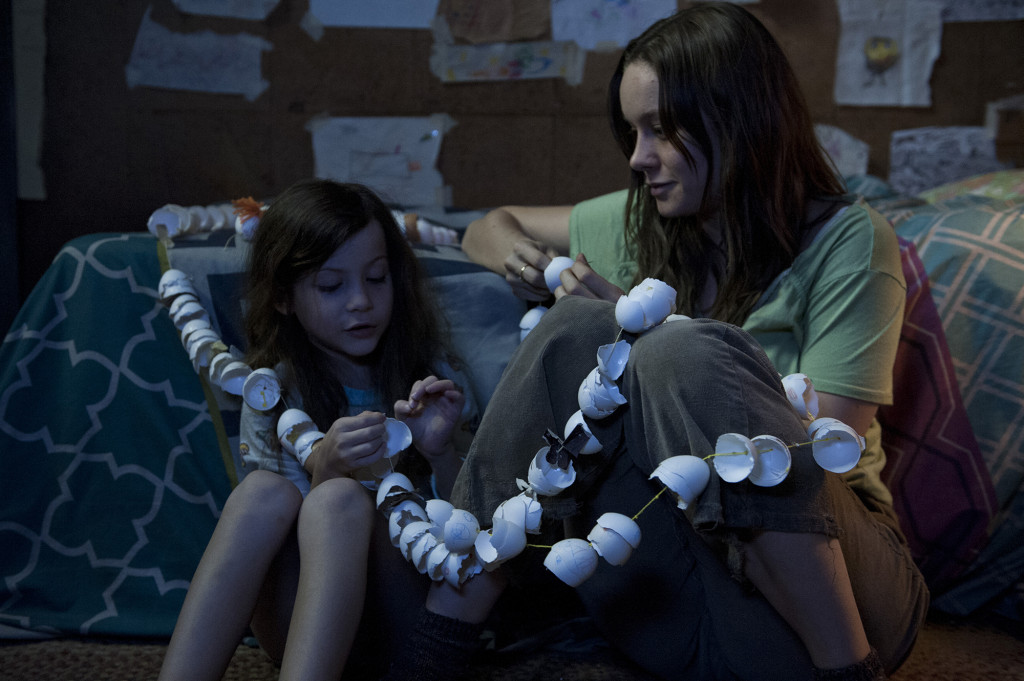Room review
 Director Lenny Abrahamson doesn’t appear to like making things easy for himself. His 2014 film Frank rested heavily on a number of complex emotions being conveyed by a character, played by Michael Fassbender, who wore a paper mache head for almost the entirety of the film. And his latest, the emotionally wrought Room, features characters who are, for the majority of the film, confined to a room that is only ten feet by ten feet. For the first section of the film we see nothing beyond these walls, save for a tiny skylight that lets in a small amount of light and provides the lead character of Jack (Jacob Tremblay) his only view, beyond television, of an outside world that he has never experienced.
Director Lenny Abrahamson doesn’t appear to like making things easy for himself. His 2014 film Frank rested heavily on a number of complex emotions being conveyed by a character, played by Michael Fassbender, who wore a paper mache head for almost the entirety of the film. And his latest, the emotionally wrought Room, features characters who are, for the majority of the film, confined to a room that is only ten feet by ten feet. For the first section of the film we see nothing beyond these walls, save for a tiny skylight that lets in a small amount of light and provides the lead character of Jack (Jacob Tremblay) his only view, beyond television, of an outside world that he has never experienced.
Jack has grown up in ‘Room’ – the word exists as a proper noun in a limited vocabulary that defines Jack’s existence – with his mother, who was kidnapped at a young age by Old Nick, a man who keeps the pair locked in Room. Old Nick visits occasionally to provide them with supplies and to rape ‘Ma’ (Brie Larson), Jack’s mother. These early scenes in Room are tough going, with Abrahamson and cinematographer Danny Cohen‘s camera staying in close on the characters and the interior of Room. Bleak but highly detailed production design by Ethan Tobman ensures that we feel very much embedded with these two characters in the claustrophobic and unpleasant jail that they have found themselves confined within.
Whilst these scenes are hard to watch and often upsetting, Abrahamson and co. are not interested in simply making an audience uncomfortable and creating an oppressive experience. There is levity at times, even humour, and due to Jack’s naivety and overriding childish wonder there is still lightness in the way in which he lives his life. Tremblay is utterly convincing as Jack, largely due, one imagines, to his youth. There is nothing at all mannered about his performance. It all feels very much as if he is simply ‘being himself’.
Jack and Ma also have a bond that is both beautiful and deeply sad, with Ma clearly trying as hard as she possibly can to protect Jack and raise him as best as she can given the incredibly challenging circumstances. In this regard Abrahamson and screenwriter Emma Donoghue – who adapted her own book for the screen – have created a fascinating way to explore the role of a parent and the way in which children develop, but one that is magnified by the central conceit of the film. Larson is stunning in the role of Ma, who we later discover is actually called Joy, conveying a desperation and frustration in her outward appearance but a real humanity and compassion in micro-gestures that help us understand the inner turmoil she must be going through.
This situation and bond between mother and son actually in turn gives way to something even richer and more complex, as Jack and then Joy finally escape from Room and are confronted with adjusting to life outside of Room and all the difficulties that this entails. New characters are also introduced, including strong supporting performances from Joan Allen and William H. Macy. As the dynamic sharply twists in Joy and Jack’s relationship and the pair go on very different but connected journeys Abrahamson and Donoghue never lose sight of the emotional complexity that gives the film its power. A relatively small scene, for instance, featuring Joy’s dad (Macy), who is struggling to engage with Jack – he appears to see Jack more as a product of the rape of his daughter than as a grandson – is expertly handled and utterly heartbreaking. And it represents a carefully considered approach to the subject matter and what possible difficulties it may entail.
Room is filled with moments of bleakness, tenderness, sadness and rapture, all of which lead to a number of later that will have many audiences sobbing somewhat uncontrollably – if my screening and my own personal experience is anything to go by. Aside from a slightly invasive score, all this emotion is handled with a great deal of care, with Abrahamson knowing exactly when to go big and when to keep things smaller and more nuanced. A beautiful and deeply affecting film, that is both emotionally and intellectually engaging at every turn.